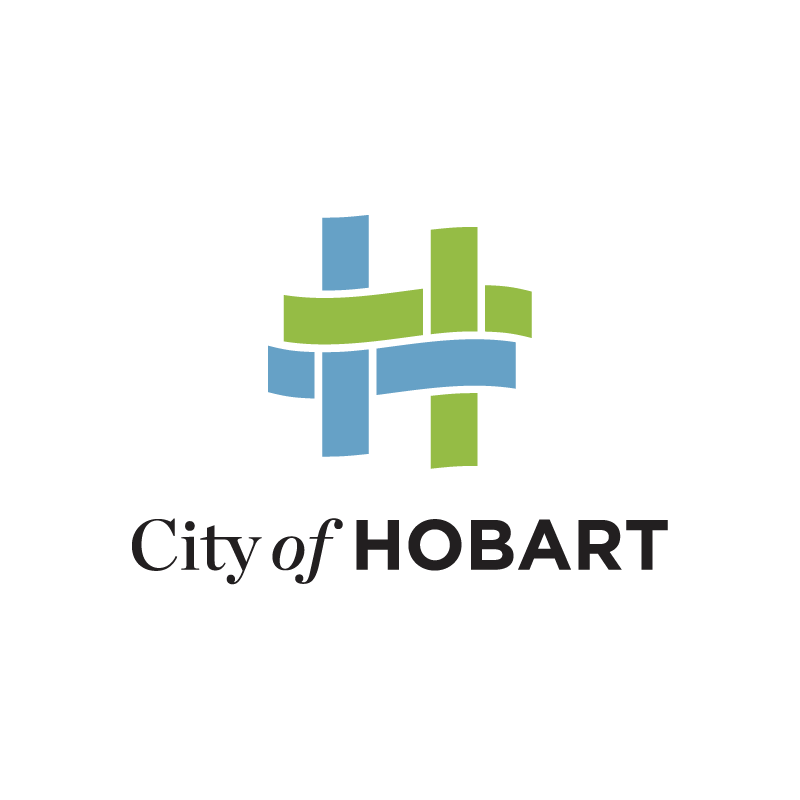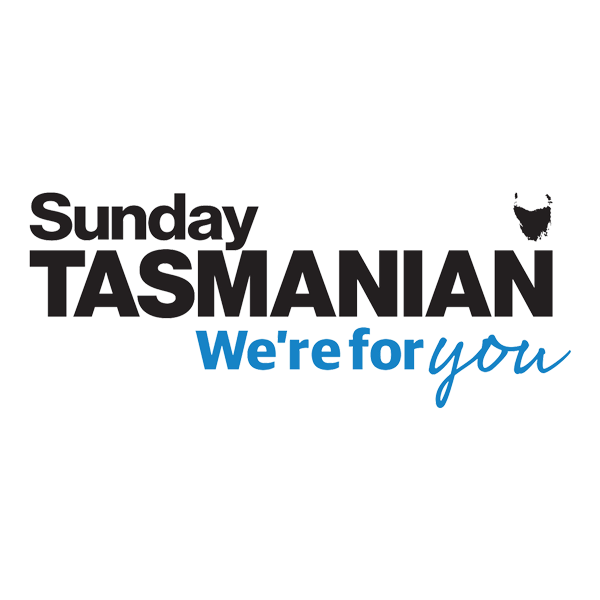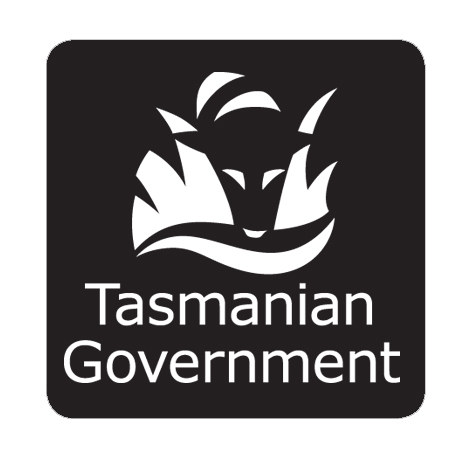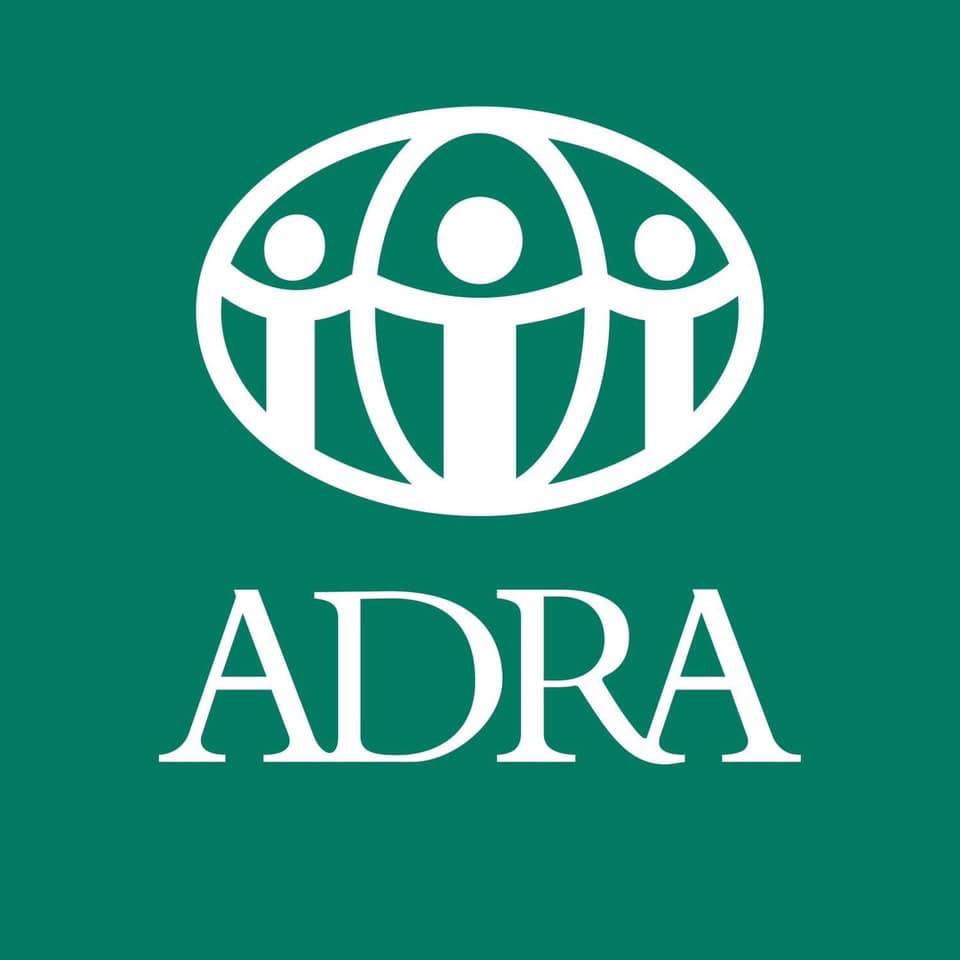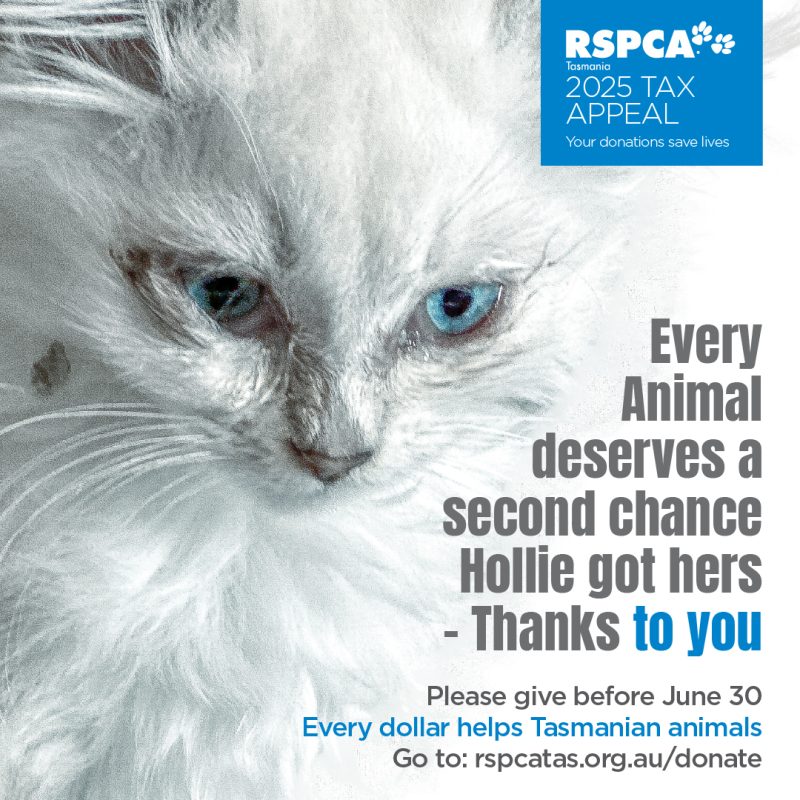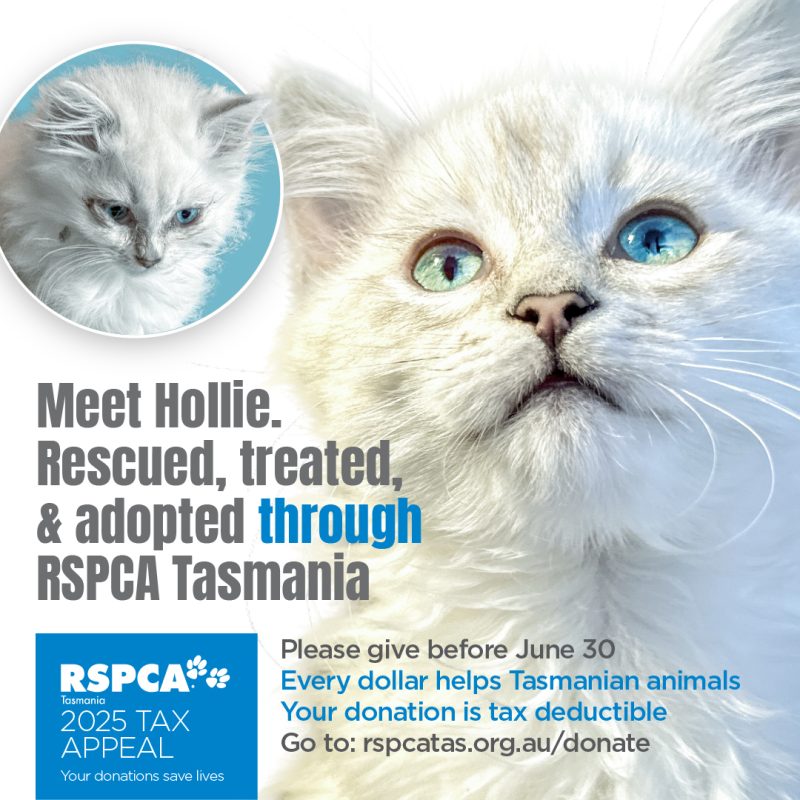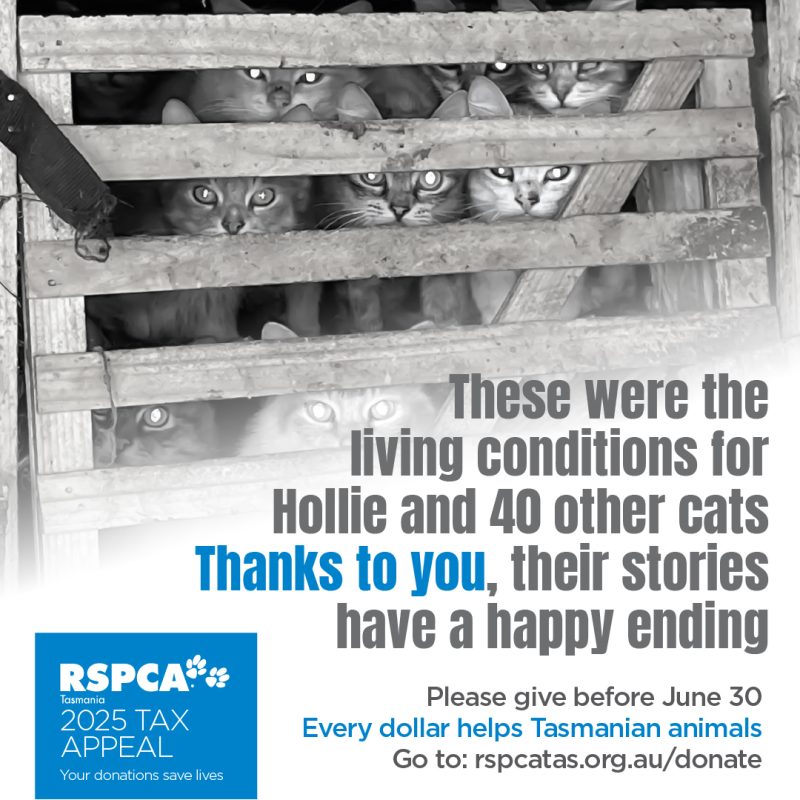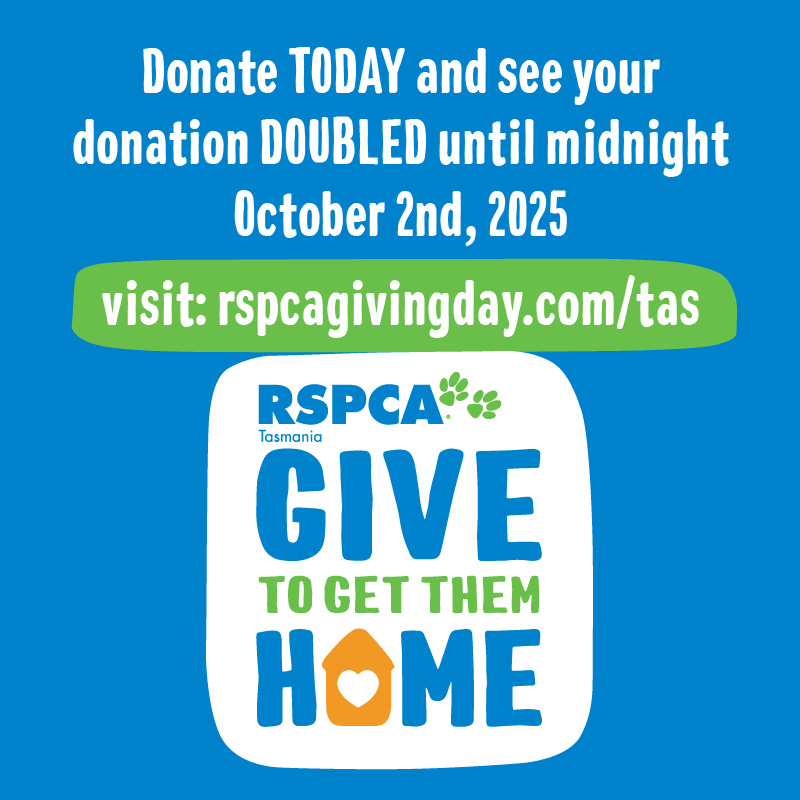Animal welfare outcomes in Tasmania have been going backwards over recent years, according to the RSPCA.
In releasing its election priorities statement, RSPCA Chief Advocate, Jan Davis, said “we have listened to the issues our stakeholders have told us need to be addressed in order to improve welfare outcomes for Tasmanian animals. This document reflects these messages, and sets out our priority expectations for the next state government. Some require funding; others can be addressed with changes in legislation and regulation.”
Unprecedented demand to care for animals at risk, increased costs, reduced donations, reduced revenue from its social enterprises, and lower levels of volunteering are severely stretching the charity’s resources.
“An outdated funding model, as well as a significant increase in demand for animal services as a result of the cost of living crisis, has left the RSPCA critically under-resourced,” Ms Davis said.
“The community expects us to be there to deal with a wide range of animal welfare issues. RSPCA Tasmania is the only non-government organisation authorised by the government to enforce its legislation. We deliver a vital public service investigating and prosecuting cases of animal cruelty and caring for thousands of animals every year that have nowhere else to go, sometimes for the duration of protracted court cases that can last months or years. As well, the government continues to expect the RSPCA to get involved in a range of issues outside this core funding with no financial support. This work all costs money.”
“The Tasmanian community is wonderfully supportive of the work that we do, but that’s not enough to do all the things that people expect us to do.”
“We are extremely grateful for the annual funding we now receive for the animal cruelty inspectorate. However, it is simply insufficient to meet even current needs – and the RSPCA has had to subsidise around 30% of the cost of the service over recent years.”
“We’re concerned that, without increased reliable funding, we will need to reduce our regulatory services, reduce the number of animals in our care, undertake fewer investigations and prosecutions of animal cruelty and reduce the assistance we provide to people and their animals facing distressing personal circumstances,” Ms Davis said.
“For an investment of $3 million pa, we could deliver an broad-based and effective animal welfare service across the state. That’s $5 for every Tasmanian – the cost of one cup of coffee a year. This would include compliance (inspectorate), and expanded prevention and outreach services.”
There are a wide range of policy and legislative issues which also must also be addressed if animal welfare standards in Tasmania are to be brought into line with those in other states. The election priorities statement sets these out in some detail.
These initiatives will ensure that the community’s increasing expectations for better animal welfare outcomes can be met, and also improve awareness of the importance of human/animal relationships in improving mental health and community health outcomes.
“Tasmanians really care about the welfare of animals and we want our elected representatives to care as well. We’re calling on those representatives to respond to community, which expects them to lead and legislate to deliver improved lives for Tasmanian animals,” Ms Davis said.
The RSPCA election priorities statement is available here:

